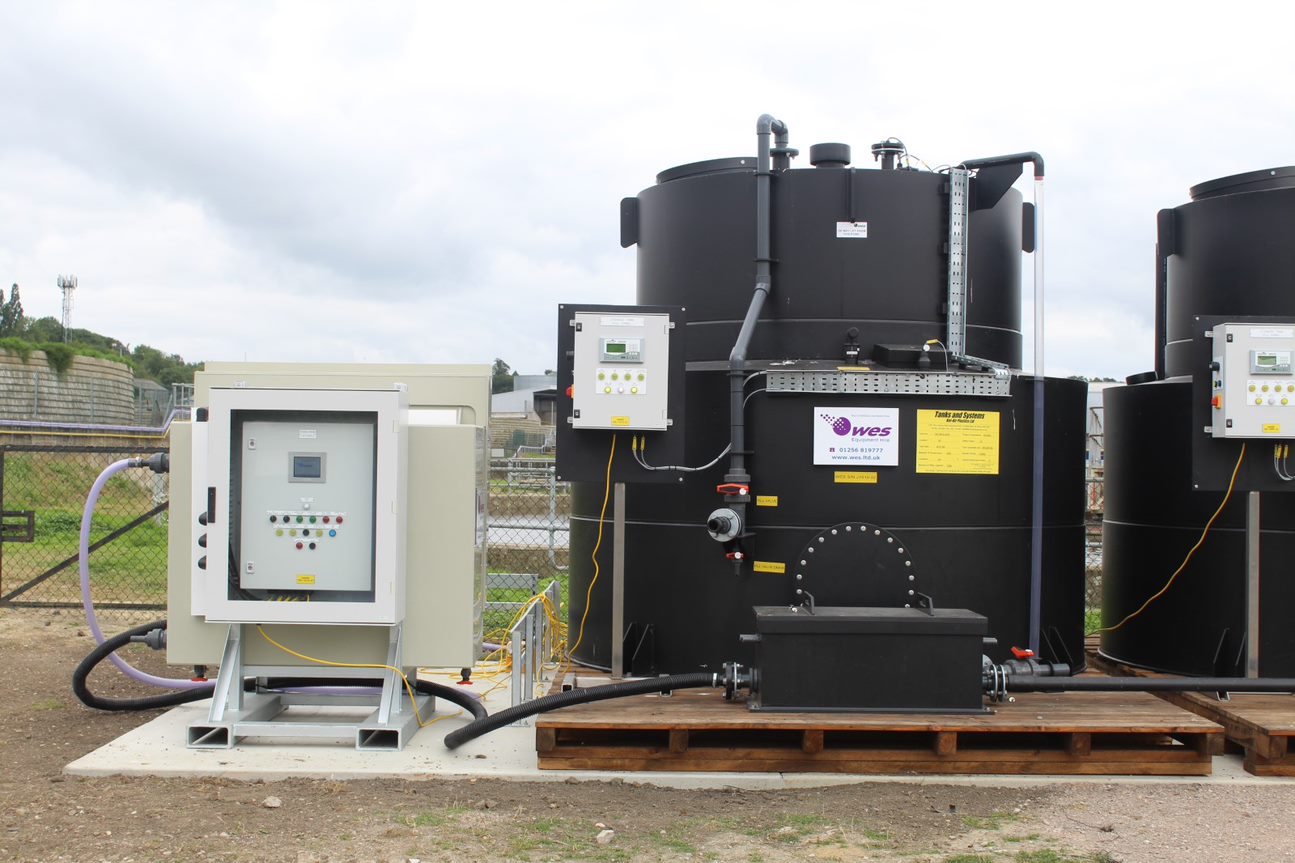Incidences of pollution will have a significant impact on funding throughout AMP7. It’s, therefore, vital that businesses involved in water and wastewater treatment focus on preventing chemical leakages. Hiring or purchasing bunds, structures that underly and wall-off areas containing hazardous chemicals or liquids, thereby providing containment in the event of leaks, represents a small investment. However, it drastically reduces the risks associated with storing chemicals.
Businesses have an array of choices to make when it comes to selecting a bund suitable for their needs. They can opt for a permanent bund, built directly on the treatment site or manufactured off-site, transported and then installed. Temporary or portable bunds, used for smaller volumes, meanwhile, are made from lighter materials. They include intermediate bulk containers (IBC) bunds, which when constructed for movement by forklift trucks are often referred to as pallet bunds.
The most suitable material for the bund must be considered and selected based on several factors, including the size of the storage containers, the nature of the chemical stored, and the bund’s position and environment. The decision is also strongly affected by whether it will be built on-site or manufactured off-site.
The most traditional permanent bunds are built with concrete, brick or block walls, standing on concrete floors. These materials, and any mortar used in the masonry walls, must be watertight and capable of resisting the chemicals.
In recent years, as off-site bund manufacture has grown in popularity, different materials and construction methods have become more common. One alternative for permanent bunds is prefabricated steel. However, this is susceptible to both atmospheric corrosion and attack by the stored chemical, so a special resistant coating must be applied to it.
Together with the growth in off-site and modular manufacture of chemical dosing systems, there has been a considerable evolution in bund construction methodology and design in recent years. For packaged systems up to around 30,000 litres, fabricated polyethylene (PE) or polypropylene (PP) bunds with a rectangular footprint are now commonplace. However, certain design issues must be addressed if they are to be considered viable alternatives to civil-engineered bunds constructed on-site.
When it comes to choosing the capacity of your bund, the UK WIMES: Water Industry Mechanical and Electrical Specifications stipulate that it should be 110% of the total storage capacity of the largest tank or 25% of the total capacity of all tanks, whichever is the greater. However, requirements for outdoor bunds may differ a little between individual water companies. Thames Water, for example, insists on sizing at 110%, while Yorkshire Water extends this to 130% in its own specifications.
Finally, bunds must be protected from the elements and rigorously maintained if they are to function correctly in the long term.
Taking all of this into account, the safest approach is often to buy or hire complete chemical storage and dosing equipment set-ups from WES. They come with the most appropriate bunds, as well as all necessary filling and safety systems, and all components are pre-assembled and pre-tested. For easy installation and integration with the plant’s existing operation, each delivery is also accompanied by the right pipework, connectors and control features.












